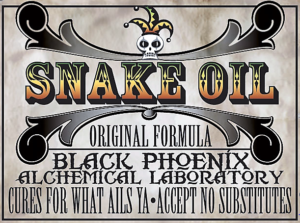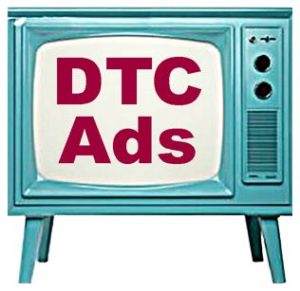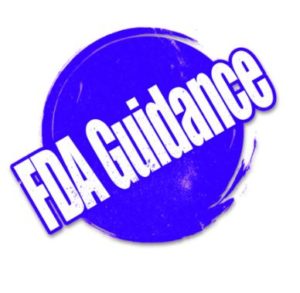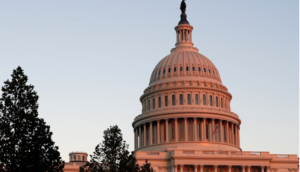- FDA calls for switching studies in draft interchangeability guidelines (biopharma-reporter.com)
The FDA expects biosimilar developers to provide data from switching studies to demonstrate interchangeability with a reference biologic in draft guidance...The recommendation – which is set out in long awaited draft guidance today – is that sponsors should submit data from a switching study, or studies, to the Food and Drug Administration in order to deem a biosimilar interchangeable with its reference product…The main purpose of a switching study or studies is to demonstrate that the risk in terms of safety or diminished efficacy of alternating or switching between use of the proposed interchangeable product and the reference product is not greater than the risk of using the reference product without such alternation or switch…prior to today’s draft guidance the US agency had not defined how a sponsor must go about generating such proof (interchangeability)...
- The FDA to study whether people can recognize misleading drug ads (mmm-online.com)
The FDA has proposed two studies that would seek to determine how well consumers and healthcare providers can identify deceptive prescription drug claims in branded marketing materials...The first study would investigate the ability of consumers and HCPs to detect false or misleading promotions when showed two mock pharmaceutical websites, one site oriented toward providers and a separate one for consumers...The second study would focus on examining whether the participants can identify the difference between implicit and explicit deceptive claims...is the claim overtly wrong? Or is it misleading because it understates certain information?...and whether those claims affect their attitudes and intentions toward the promoted drug...The notice comes as the agency grapples with an industry pushing for the sharing of truthful, non-misleading information with more stakeholders outside of a drug's approved label
- What do new FDA letters dinging ‘misleading’ pharma TV ads mean for the industry? (fiercepharma.com)
FDA admonishment of Celgene and Sanofi for DTC TV ads has industry insiders checking the tea leaves for what the letters might signal. The upshot? Possibly an end to overly happy and energetic lifestyle pharma ads...The main complaint in both untitled letters from FDA drug marketing enforcer OPDP (Office of Prescription Drug Promotion) —to Celgene for oral psoriasis treatment Otezla and Sanofi for diabetes drug Toujeo—is distracting music and visuals that interfere with consumers fully understanding the risk information. Both ads have been running since this summer...These commercials are not much different from many other upbeat DTC ads with music...If they are cracking down on these two, then they have decided to look at all of these type of ads. FDA is very subjective about these kind of violations...Sanofi told FiercePharma in an interview last week that it is working to pull the Toujeo TV ads, while Celgene said more broadly that it will work with the FDA to address its concern.
- 8 Things to Know About Biosimilars (medscape.com)
With the recent US Food and Drug Administration approval of a fourth biosimilar medication, these compounds remain a hot topic in many areas of medicine, including nephrology, oncology, endocrinology, gastroenterology, and rheumatology…Despite the growing body of knowledge about biosimilars—and despite their increasing coverage in peer-reviewed journals and presentations—a recent Biosimilars Forum press release reveals that more physician education is needed about these medications...
- What Are Biosimilar Medications?
- What Is the Approval Process of Biosimilars?
- How Many Are Approved, and for What Conditions?
- What Does 'Interchangeable' Mean?
- What Is Extrapolation?
- Are Biosimilars Safe, and Can They Be Trusted?
- Do Patients Know and Trust Biosimilars?
- How Do the Costs of Biosimilars Compare to Biologics?
- IBM Watson and FDA to develop secure ‘blockchain’ patient data sharing (pharmaphorum.com)
IBM Watson is to work with the FDA to investigate the use of blockchain technology, seen as one of the most secure ways of sharing patient data...(it) allows each separate patient data source to be a ‘block’ part of a complete, unalterable patient data profile which can then be shared securely with healthcare providers or research organisations...Initially focused on oncology-related data, the collaboration will look at how best to exchange data gathered from multiple owner mediated data sources such as Electronic Medical Records, clinical trials, genomic data, mobile devices, wearables, and Internet of Things technologies...The deal aims to overcome the limitations of large scale sharing of health data seen in the past, namely data security and patient privacy concerns during the data exchange process.
- FDA releases guidance on electronic drug applications (biopharmadive.com)
The Food and Drug Administration is ironing out new rules for how drug companies can electronically submit medications for approval, and on Dec. 28 unveiled a draft of what they have planned so far…The draft largely focused on manufacturing establishment information (MEI) — things like a production facility's address, what it's manufacturing, how to reach the person in charge of scheduling inspections, as well as a unique facility identifier, which the agency uses to keep track manufacturing plants…The FDA is requiring companies to electronically submit MEI for each facility, but all in a single list. Companies must provide those lists for new drug applications (NDAs), abbreviated new drug applications (ANDAs), biologics license applications (BLAs), and any other supplemental materials… Once the final version of the guidance gains approval, drugmakers will have 24 months before the new rules become mandatory…The agency noted several reasons for the push toward electronic MEI submissions. The primary one was the convenience of having all the information on a single file versus non-electronic applications, where it can be scattered.
- As drug approvals dive in 2016, returns on R&D deteriorate (reuters.com)
The global pharmaceuticals industry is set to win the lowest annual number of new drug approvals this year since 2010...drugmakers' returns on research investment are deteriorating...Only 19 new drugs have been approved in the key U.S. market so far in 2016 and, with less than three weeks to go, it is clear the full-year tally will be well down on 2015 and 2014's bumper haul of 45 and 41 new products respectively...At the same time the profitability of drug research is being squeezed by steadily rising costs and increasing political pressure over the high prices of many modern medicines...As a result projected returns on investment in research and development for the top 12 pharmaceutical companies have fallen to just 3.7 percent this year from a high of 10.1 percent in 2010…
- FDA warning letter tells Clorox to clean up Aplicare plant (fiercepharma.com)
The FDA says the unit of Clorox that manufactures povidone-iodine drug products needs to clean a big mess at a plant in Meriden, Connecticut, which failed to follow steps to insure the sterility of its wound products—products that the FDA also said are “unapproved.”...The agency...posted a warning letter for the Aplicare plant…(it) said...the plant failed to implement adequate microbial controls...some of its products are unapproved because they do not comply with the FDA’s OTC Final Monograph for Topical Antifungal Drug Products.
- FDA Warns Wockhardt for Destroying CGMP Documents, Other Violations (raps.org)
...Indian drug manufacturer Wockhardt is in trouble again with the US Food and Drug Administration, this time for destroying current good manufacturing practice documents, among a list of other major violations...FDA sent a warning letter to the company following an eight-day inspection...of its Ankleshwar...manufacturing site that uncovered “torn and shredded equipment maintenance documents, raw material labels, and change control work orders” in the site’s scrap yard awaiting incineration...The site was banned from shipping products to the US in August...This is the latest in a series of failures by Wockhardt to meet the standards of not just FDA but other regulators...
- House Just Passed the Biggest Health Reform Bill Since Obamacare (fortune.com)
The House of Representatives on Wednesday night overwhelmingly passed wide-ranging legislation meant to overhaul the drug approval process, boost biomedical research, and many other significant health-related policies. The so-called 21st Century Cures Act was approved on a 392-26 vote and will head to the Senate for consideration next week...The bill aims to speed up the approval for drugs and medical devices through a variety of tweaks to the Food and Drug Administration. But it also encompasses a host of other big initiatives, including more than $5 billion in funding for the National Institutes of Health and money to help the FDA; $1 billion for tackling the opioid epidemic; and provisions that are meant to help pair Americans who suffer from serious mental illnesses with available psychiatric beds...










